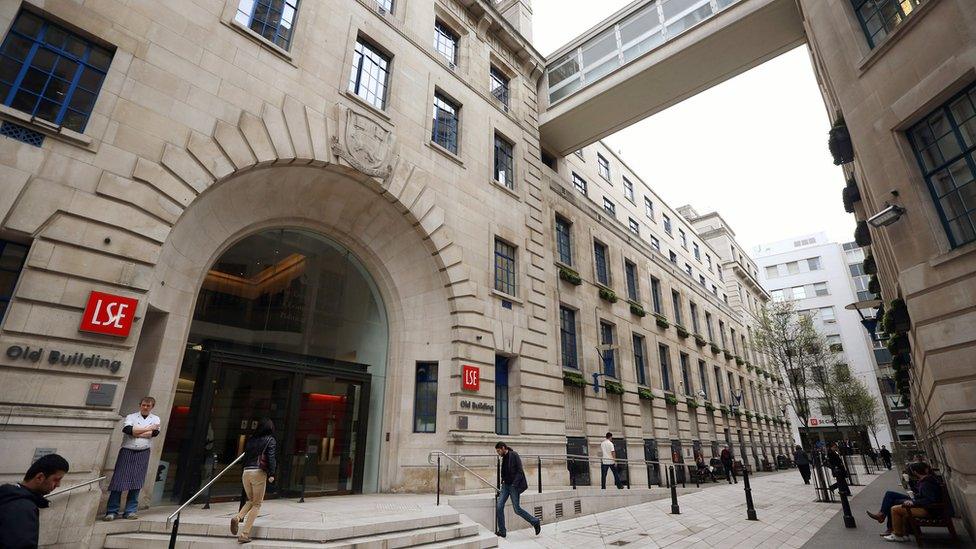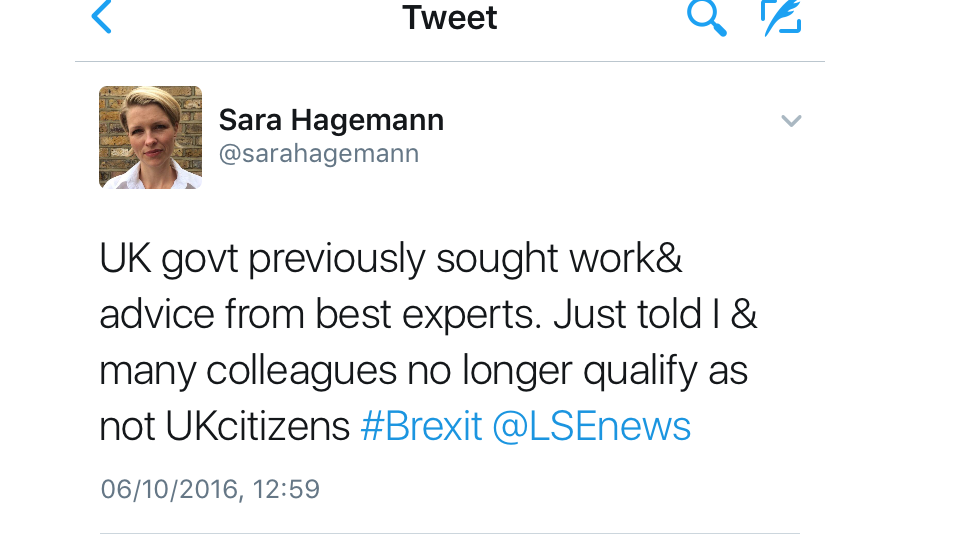Brexit: LSE foreign experts 'should not advise ministers'
- Published

Only UK-passport holders will be asked to provide policy advice to the government, says LSE
The London School of Economics says some of its academics have been barred from advising the Foreign Office on Brexit because they are not British.
The university said the leader of a project had been told only UK passport-holders should be involved in talks on national security and foreign trade.
But the Foreign Office said nothing had changed following Brexit.
It said it would "continue to take advice from the best and brightest minds, regardless of nationality".
Former Liberal Democrat leader Nick Clegg, now the party's EU spokesman, said: "It is utterly baffling the government is turning down expert, independent advice on Brexit simply because someone is from another country.
"This is yet more evidence of the Conservatives' alarming embrace of petty chauvinism over rational policymaking."
A spokesman for the LSE said that after the referendum, a team of fewer than 10 researchers had been charged with providing policy advice to help ministers troubleshoot any issues that might arise as the process of leaving the EU progresses.
'No longer qualify'
In a statement, the LSE said: "We believe our academics, including non-UK nationals, have hugely valuable expertise, which will be vital in this time of uncertainty around the UK's relationship with Europe and the rest of the world.
"Any changes to security measures are a matter for the UK government."
A spokesman for the Foreign Office said: "The FCO regularly works with academic institutions to assist in its policy research, and nothing has changed as a result of the referendum.
"It has always been the case that anyone working in the FCO may require security clearance depending on the nature and duration of their work.
"Britain is an outward-looking nation and we will continue to take advice from the best and brightest minds, regardless of nationality."

Sara Hagemann posted the news on Twitter
The LSE's assistant professor Sara Hagemann wrote on Twitter she was no longer wanted on the project.
The Danish academic joined the university's European Institute in September 2009 and is regarded as a leading commentator on European Union affairs.
She tweeted, external: "UK govt previously sought work& advice from best experts. Just told I & many colleagues no longer qualify as not UKcitizens #Brexit @LSEnews".
The information was communicated yesterday to team members who do not hold UK passports in an internal LSE email.
Alistair Jarvis, deputy chief executive of Universities UK, said foreign academics played an "important role" in providing advice and expertise to the government.
"As the UK prepares for Brexit, it is important that those in government responsible for negotiating the UK's exit from the EU have access to the very best possible advice and expertise available, regardless of the nationality of the individual providing it," he added.
"Experts of all nationalities at British universities specialising in areas such as European policy, law, economics, trade and other relevant fields are well qualified to offer expert support to the UK government."